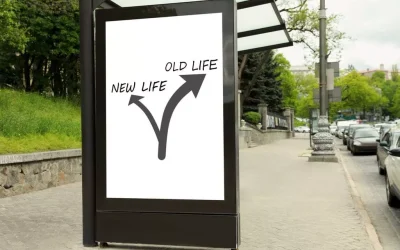There are many different factors that can affect the severity of alcohol withdrawal. For example, the frequency, duration, and the amount of alcohol consumed when drinking can all play a role in the severity of withdrawal symptoms. Your age, and whether you have had a history of seizures and/or delirium tremens, as well as your past withdrawal history are all also factors in withdrawal severity. Lack of nutrients affects not just our physical body, but our cognitive abilities as well, such as our ability to process information and solve problems. In fact, a deficiency in the essential nutrient thiamine resulting from chronic, heavy alcohol consumption is one of the biggest factors contributing to alcohol-induced brain damage. Brain fog is that fuzzy, forgetful feeling that can happen for various reasons.

Podcast Episodes to Support You During Dry January
- Sobriety brings the gift of learning new ways to effectively spend your time.
- Some investigators use more sophisticated strategies based on cognitive psychology to better understand the nature of the cognitive dysfunctions.
- « I can’t believe the luxury of sleep! After a really hard time, I slept for two nights! Not all night, but great sleep. »
- Taking proper steps to treat these issues can help minimize its duration.
- Specifically, one study revealed that English walnuts « reduce the oxidant and inflammatory load on brain cells » and improve the transmission of neural messages in the brain, as well as aid in the removal of toxic proteins.
It is important to remember that your body is going through a lot when you first stop drinking alcohol. The brain is so good at adjusting to changes regarding what you put into your body that it figures out how to function during times when you are drinking heavily. Once you take away the chemical reactions that alcohol causes, your brain has to refigure out how to work normally again. Brain fog during the initial stages of withdrawal is often just your brain trying to figure out how it used to function before it was flooded with alcohol on a regular basis. A healthy withdrawal program can help you detoxify your body and brain from the harmful effects of alcohol, and generally start your addiction treatment journey. Many people who drink alcohol experience brain fog, and it can be quite debilitating.
What Happens to Your Brain When You Stop Drinking?
They may struggle with making decisions, staying focused, and remembering simple things. In some cases, it may impact their quality of life and ability to perform basic functions related to personal care and safety. Abstinence can often reverse the harm that drinking may do to the brain. Seeking treatment and maintaining sobriety is essential to prevent relapse and keep your cognitive function on the rise.
Day 30 and Beyond
It’s similar to a spring cleaning that your body conducts to get rid of alcohol remnants. Detox is the body’s reactionary mechanism to sudden alcohol deprivation, making it a challenging phase. Through exploring how alcohol affects your energy levels and reviewing the reality of PAWS, we can better comprehend why exhaustion follows the decision to quit drinking. This valuable knowledge helps create more realistic expectations and effective management plans during recovery periods. The brain can become dependent on acetate as an energy source, making withdrawal even worse. When someone is trying to quit drinking they suddenly have a lack of acetate for energy.
National Institute on Alcohol Abuse and Alcoholism (NIAAA)
At Renaissance Recovery our goal is to provide evidence-based treatment to as many individuals as possible. Give us a call today to verify your insurance coverage or to learn more about paying for addiction treatment. If you’re experiencing chronic fatigue or if your symptoms worsen over time, it’s a clear signal to consult a medical professional. Also, fatigue might be a side effect of medication used during detoxification. In such scenarios, a discussion with your doctor might pave the way for medication adjustment. Counseling and therapy deal with your addiction’s psychological and emotional aspects.

The Long-Term Effects: Sobriety Fatigue
In addition, information presented to patients should be concrete rather than abstract; active strategies that emphasize practice may be used. Also, treatment professionals must not depend on alcoholics being able to demonstrate “quick thinking” in high-risk situations that may trigger drinking. Alcoholics must be able to practice with specific behaviors in treatment that reduce risk until these behaviors are as automatic as possible. It is possible that even subtle cognitive deficits could affect how alcoholics seek and participate in treatment and resume normal lives in the weeks and months after they stop drinking. Three examples of different types of deficits and their impact on elements of treatment are presented below.
Alcohol Withdrawal and Brain Fog
She brings strength in strategic planning, improving operational efficiencies, and innovating to advance healthcare. Most recently, Ms. Shin served as CEO of Health Plan of San Joaquin, where she oversaw healthcare delivery to underserved areas of California. In addition to these therapies, medication and lifestyle changes can also be beneficial in addiction treatment.
- « Most of my withdrawal symptoms are gone, but I still have sharp pains in my head, can’t sleep, and get night sweats. »
- By day eight of abstinence from alcohol, many begin to see the health advantages of quitting.
- Prior to joining WelbeHealth, Blaire served as General Counsel and Compliance Officer of Iora Health, where she built the legal operations and partnered with business leaders in scaling the compliance program.
- This will cause your brain to automatically begin to wind down near bedtime.
- He also founded CalPACE, the first state association for PACE organizations.
Moderate Symptoms
Your body, already exerted, is asked to keep going, stirring up an experience of prolonged, deep-seated fatigue. If you’re wondering how to get rid of alcohol-induced “brain fog,” it may be time to seek professional treatment. Professional treatment can help you stop drinking and regain control of your life. In this process, your doctor will assess and develop a tailored detox plan. Apart from the cessation of alcohol, you will undergo medical supervision and management to help you cope with withdrawal symptoms better. Medical supervision is always recommended because detox can be such an unpleasant — and even life-threatening — experience.
Alcohol Brain Fog: How to Start Healing Your Brain
Dry January effects on body revealed—from sex drive to skin – VOGUE India
Dry January effects on body revealed—from sex drive to skin.
Posted: Tue, 02 Jan 2024 08:00:00 GMT [source]
The best way to combat this issue is to reduce or eliminate alcohol consumption. This can be done by setting limits on how much you drink, avoiding drinking in situations where you may be tempted to overindulge, and seeking advice from others. From 2 months to 5 years of abstinence people makeincredible cognitive gains and get very close to a full restoration of normal functioning. Experiencing brain fog following addiction alcohol withdrawal brain fog can be a frustrating experience, but hang in there. The smoke will clear in due time and your noggin will be back in shape before you know it, especially with the help of these brain-boosting practices. Although debate exists as to the validity of claims by brain game creators that playing their games a certain amount of time each day will improve brain function, some brain training apps are co-created by neuroscientists.
- We often don’t realize it, but water actually helps our brain cells communicate with each other.
- It’s important to recognize and accept that this phase, just like the detox phase, is only temporary.
- Seniors should commit to their sobriety, stay positive, and look for support from loved ones.
- It also helps control our cognitive abilities, such as learning and memory.
- Alcohol is a powerful reinforcer in adolescents because the brain’s reward system is fully developed while the executive function system is not, and because there is a powerful social aspect to adolescent drinking.
- There are also some medication options prescribed by doctors that may help with symptoms.
Alcohol Withdrawal Timeline: Symptoms and What to Expect
« Sleep is a problem, but if I sleep at all, it is a good night. I think that I have always had the sleep disorder. » « I realize this is no easy task. I am in my 30s and just now have decided to quit. I am not sleeping right. I snap at everyone. » « Most symptoms are gone except constipation and occasional shakes. Been sleeping really good. » « Today, I went to the grocery store, and I cannot believe how clear everything is getting. It’s amazing how foggy life was. »

COMMENTAIRES